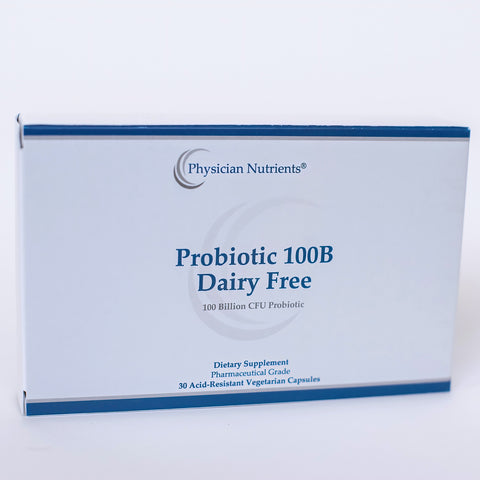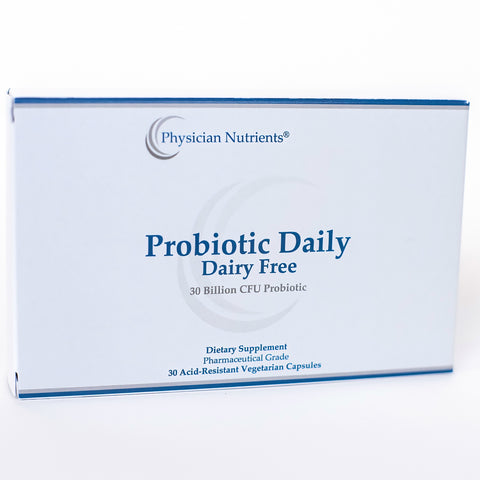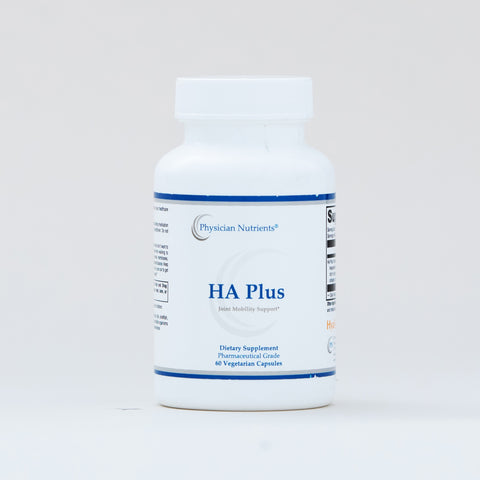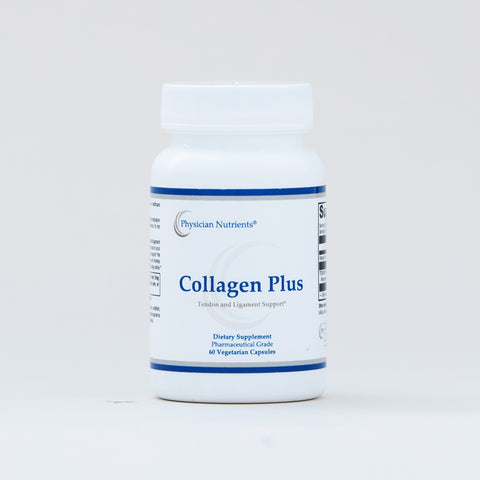DHA-EC
Taking just one DHA-EC provides significantly more absorbability than taking two of our previous DHA product!
DHA-EC features patented MaxSimil® DHA monoglyceride fish oil. This readily absorbed omega-3 fatty acid formula provides concentrated docosahexaenoic acid (DHA) plus eicosapentaenoic acid (EPA). DHA is often recommended during pregnancy to support healthy fetal brain development. Throughout the life span, both DHA and EPA support healthy brain, heart, immune, and eye function as well as healthy eicosanoid metabolism.*
All Physician Nutrients® Formulas Meet or Exceed cGMP Quality Standards
Details
30 Fish Gelatin Softgels
Applications
- Supports Early Brain Development*
- Promotes Brain, Eye, Heart, and Cell Membrane Function Throughout the Lifespan*
- Supports Immune Health and Eicosanoid Metabolism*
Directions: Take one to two softgels daily or as directed by your healthcare practitioner.
Consult your healthcare practitioner prior to use. Individuals taking medication should discuss potential interactions with their healthcare practitioner. Do not use if tamper seal is damaged.
Does Not Contain: Wheat, gluten, corn, yeast, soy protein, dairy products, shellfish, peanuts, tree nuts, egg, ingredients derived from genetically modified organisms (GMOs), artificial colors, artificial sweeteners, or artificial preservatives.
*These statements have not been evaluated by the Food and Drug Administration. These products are not intended to diagnose, treat, cure, or prevent any disease
Supportive Science
The two most well-researched omega-3 polyunsaturated fatty acids (PUFAs) are docosahexaenoic acid (DHA) and eicosapentaenoic acid (EPA). DHA is an essential structural component of the central nervous system, and EPA plays a role in supporting healthy cardiac and circulatory systems. DHA-EC features MaxSimil DHA. This particular form of the highly absorbable, patented MaxSimil monoglyceride fish oil contains 1,350 mg of concentrated DHA and 236 mg of EPA.*
Absorption
Studies conducted by the manufacturer of MaxSimil provide promising results suggesting better absorption than other fish oils. An unpublished, double-blind, crossover, pharmacokinetic study was performed in healthy overnight-fasted male and female subjects (N = 20) ages 19 to 60. Each subject was administered a single dose of six softgels (containing ~2000 mg EPA and ~1500 mg DHA) of either ethyl ester (EE) fish oil or MaxSimil. Compared to the EE form, MaxSimil EPA and DHA reached a peak concentration more than three times higher than that reached by EE fish oil. Moreover, MaxSimil not only reached maximum concentration faster but also maintained plasma levels longer. Additional peer-reviewed research related to bioavailability is warranted.*
Early Brain and Eye Development
Polyunsaturated fatty acids (PUFAs) play a critical role in the normal development of the eye, brain, and central nervous system, and DHA is the most abundant structural fatty acid in these tissues. DHA is transferred directly from mother to fetus during pregnancy, especially during the last trimester, and is available to infants through breast milk. This fatty acid plays a vital role in both prenatal and postnatal brain development. Based on recommendations made by various organizations, pregnant and nursing women should consume 100-300 mg of DHA daily to meet basic fetal and infant needs.*
Research indicates that DHA-supplemented and breastfed infants score significantly better on mental and psychomotor development tests and that PUFAs may support normal activity levels and learning capacity during preschool years. A study of infants (N = 229) enrolled in three randomized controlled trials suggested that a dose of 0.36% of total fatty acids as DHA (a concentration representative of human breast milk) contributed to favorable problem-solving performance, a parameter found to correlate with later IQ and vocabulary development. However, the outcome of a systematic review and meta-analysis showed that although omega-3 supplementation does appear to improve childhood psychomotor and visual development, more studies are needed to confirm these conclusions and to explore the significance of IQ later in childhood.*
DHA has also been researched for its role in developing and maintaining eye health and function during early life. A randomized trial of healthy formula-fed infants (N = 244) suggested that infants who were not given DHA had poorer visual acuity than those who were supplemented with DHA amounting to 0.32% of total fatty acids. Optimal retinal and visual cortex maturation was understood to depend upon dietary DHA during development, and visual acuity and mental development were “seemingly improved by extra DHA.”
Nervous System, Brain, Eye, and Cell Membrane Function
Functioning via cell membranes and anchored by phospholipid molecules, DHA helps to optimize signal transmission in the tissues of the brain, eyes, and the overall nervous system. Levels of this fatty acid decline with aging. DHA supplementation may play a role in maintaining myelin and neuronal health, supporting healthy eicosanoid metabolism in the brain, and exerting pleiotropic effects to support healthy metabolism and aging throughout the lifespan.*
A study of healthy community volunteers (N = 280), ages 35-54, showed that higher DHA levels were significantly associated with performance improvement in the areas of nonverbal reasoning, mental flexibility, working memory, and vocabulary. Other research has focused on neuroprotectin D1 (NPD1), an important mediator derived from DHA through the action of 15-lipoxygenase-1. This mediator appears to have a positive effect on neurotrophic cell signaling, normal cell-life cycles, beta-amyloid neurobiology, and prostaglandin formation. A systematic review and meta-analysis suggested that omega-3 supplements play a role in improving cognitive development in infants. Although the research summarized in those studies indicated a functional role of DHA in brain health and an effect on attention domain, additional research is needed to further define DHA’s role in cognitive function for groups other than infants.*
DHA is also required for the functional integrity of retinal pigment epithelium (RPE) cells and may play an ongoing role in eye health and function throughout life. Studies on human RPE cells suggest that NPD1 orchestrates cell-protective mechanisms (including inhibition of caspase-3 activation and COX-2 expression) and thus promotes a healthy response after cellular insult.*
Eicosanoid Metabolism, Heart Health, and Immune Health
In addition to the functional effects discussed above, research has established that omega-3 fatty acids antagonize arachidonic acid-induced eicosanoid formation. They also help generate resolvins and protectins known as specialized pro-resolving mediators (SPMs)—EPA and DHA metabolites that are naturally produced in vivo through enzymatic conversion of EPA and DHA—to promote a healthy response to the arachidonic acid cascade. Omega-3s have also been widely researched for their promotion of cardiovascular health, including maintaining healthy lipid levels already within the normal range and supporting normal resistance to oxidative stress. Although not excluding similar benefits of EPA and docosapentaenoic acid (DPA), DHA may have a direct or indirect benefit of keeping the heart rhythm healthy and consistent. In multivariable-adjusted cross-sectional analyses among older adults (N =~3000), plasma phospholipid DHA—but not EPA or DPA—was inversely associated with resting heart rate and a trend toward lower blood pressure (BP). In one short trial, DHA reduced 24-hour ambulatory BP and heart rate; in another small trial (n = 59), the effect was not seen. Researchers speculated that statistical power may have been limited by the size of the latter study. This may have been the case since in another, larger study (N = 224) in healthy men receiving 4 g/ day each of EPA and DHA, lower heart rate and blood pressure was achieved. In this study, plasma phospholipid analysis revealed that only DHA was responsible for lowering heart rate. Additionally, due to the preponderance of findings that EPA and DHA can help moderate blood pressure, the FDA has approved a qualified health claim with regard to this function. Specifically for Omega MonoPure DHA EC: Research shows that consuming EPA and DHA combined may be beneficial for moderating blood pressure, a risk factor for CHD (coronary heart disease). However, the FDA has concluded that the evidence is inconsistent and inconclusive. One serving (2 softgels) of Omega MonoPure DHA EC provides 1.58 grams of EPA and DHA.*
Omega-3 fatty acids may also have immunomodulatory effects. It has been suggested in several human studies that supplementing with a DHA-rich oil appears to decrease the activation of T lymphocytes and mononuclear cells and decrease levels of inflammatory mediators. The immune-altering effects may be due to the composition of the cell membrane as well as to the activity of the DHA-derived resolvins.*
*These statements have not been evaluated by the Food and Drug Administration. These products are not intended to diagnose, treat, cure, or prevent any disease.








